UK to request extradition of Russian novichok attack suspects
Reports suggest Moscow unlikely to comply with British government’s request
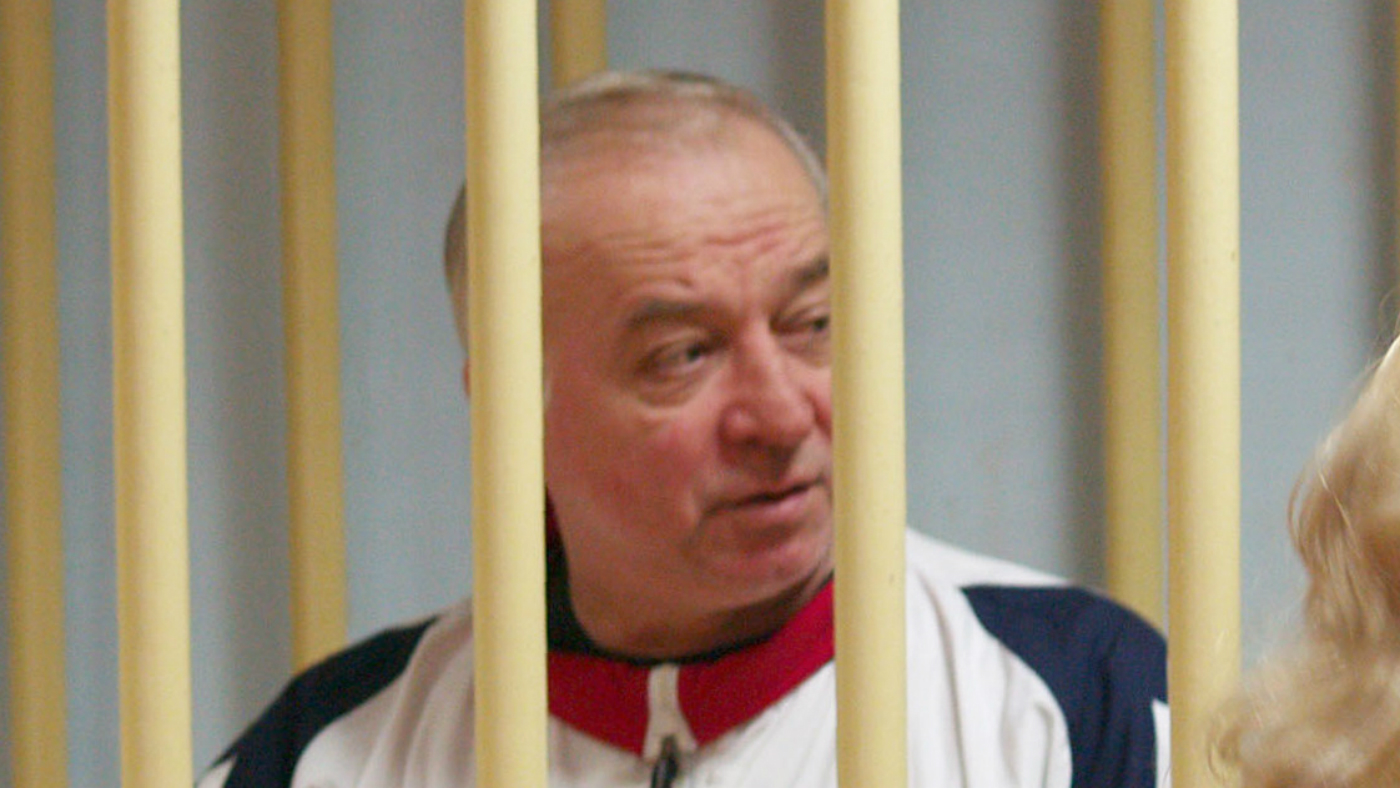
A free daily email with the biggest news stories of the day – and the best features from TheWeek.com
You are now subscribed
Your newsletter sign-up was successful
20 April
Sergei Skripal poisoning: novichok ‘hotspots’ in Salisbury to be decontaminated
The deadly nerve agent used to poison former spy Sergei Skripal and his daughter may still be present at nine ‘hotspots’ in Salisbury, Government scientists believe.
“We have to make an assumption that in certain circumstances there will be relatively high concentrations, probably in very, very specific locations, which could be at levels that could be toxic to individuals,” Boyd told a meeting for residents of the Wiltshire city last night.
The Week
Escape your echo chamber. Get the facts behind the news, plus analysis from multiple perspectives.

Sign up for The Week's Free Newsletters
From our morning news briefing to a weekly Good News Newsletter, get the best of The Week delivered directly to your inbox.
From our morning news briefing to a weekly Good News Newsletter, get the best of The Week delivered directly to your inbox.
However, he added that all suspected contamination sites had been cordoned off and that the general public was not at risk.
The sites to be decontaminated include “two ambulance stations, a car compound and the home of Det Sgt Nick Bailey, who was left seriously ill after responding to the attack”, the BBC reports.
The building that houses council offices and Salisbury’s police station will also close for up to eight weeks, while specialists treat two lockers and an evidence room believed to have come into contact with the deadly substance.
“As Mr Skripal's home is still part of the police investigation, his is the last on the list to be cleaned,” Sky News reports. High concentrations of the liquid substance were found smeared on door handles at the property.
A free daily email with the biggest news stories of the day – and the best features from TheWeek.com
Skripal, 66, remains in hospital, where he is said to be slowly recovering from the effects of the nerve agent. His daughter, Yulia, was released earlier this month and transferred to a secret secure location.
17 April
Sergei Skripal poisoning: nerve agent delivered in liquid form
The poison used to attack former Russian double agent Sergei Skripal and his daughter Yulia was delivered in liquid form, the UK authorities have revealed.
According to the Department for Environment, Food and Rural Affairs (Defra), a “very small amount” of the novichok nerve agent was found at Skripal’s home in Salisbury, Wiltshire. The highest concentration was found on the front door.
“Direct contact is required for a person to be poisoned - only a small proportion of the material is transferred and the substance is diluted in each secondary and tertiary contact,” said a Defra spokesman.
Nine other sites around Salisbury will need to be decontaminated, after the nerve agent was spread by infected people. The process “will take months and involve almost 200 members of the armed forces”, The Guardian reports.
An area of the cemetery where Skripal’s wife and son were buried had been cordoned off by police, following reports that Skripal and his daughter visited the graves on 4 March, the day of the attack. However, it was reopened today after “extensive investigations and testing” established that it was not contaminated.
A Zizzi restaurant visited by the Skripals on the day of the attack has also been cleared, as has the Ashley Wood compound where Skripal’s BMW was taken following the attack.
Sergei Skripal, 66, and his daughter Yulia, 33, were found slumped on a bench at the city’s Maltings shopping centre. They were taken to hospital and spent weeks in intensive care.
Yulia Skripal was discharged from hospital on 9 April and taken to a secure location. Her father is no longer in a critical condition but remains in hospital.
The UK and its allies believe the attack was carried out by the Russian state, a claim denied by Moscow, which has accused the UK of masterminding the poisoning.
13 April
Sergei Skripal poisoning: Russian spies ‘trained to apply nerve agent to door handles’
Russian spies practised using door handles to transmit deadly nerve agents before former double agent Sergei Skripal and his daughter Yulia were targeted in a similar attack, the UK’s top security official has claimed.
In a letter addressed to Nato chief Jens Stoltenberg, National Security Adviser Sir Mark Sedwill says that there “no plausible alternative explanation” for the apparent attempted assassination besides Russian involvement.
Sedwill cites previously classified intelligence gathered by British agents that Russian security services were undertaking an “investigation of ways of delivering nerve agents, including by application to door handles”.
The highest concentrations of the novichok nerve agent used in last month’s attack were found on the door handle of Sergei Skripal’s home in Salisbury, Wiltshire.
The dossier also claims that Sergei and Yulia Skripal’s email communications have been the target of Kremlin interference since at least 2013. “It is the first time the UK government has claimed to have specific information that the Russians were interested in the Skripal family,” says the BBC.
Sedwill’s letter marks an “extremely rare” public disclosure of such sensitive intelligence, says The Guardian.
“The Government has faced growing pressure to publish more of the evidence which lead to its conclusion of Russian culpability,” says The Daily Telegraph. “Ministers will hope that Mr Sedwill’s letter will help assuage concerns.”
On Thursday, international watchdog the Organisation for the Prohibition of Chemical Weapons confirmed that it agrees with British scientists’ conclusions as to the type of nerve agent used in the attack.
Experts at the Porton Down military laboratory identified the substance as novichok of a military-grade purity, which indicates that it was produced by a state actor.
Yulia, 33, was discharged from hospital earlier this week, more than a month after she and her father was found slumped unconscious on a bench in Salisbury. She is now believed to be at an undisclosed safe location. Her 66-year-old father remains in hospital.
12 April
What next for the Skripals and Anglo-Russian relations?
The international chemical weapons watchdog has confirmed the UK’s analysis of the type of nerve agent used in the poisoning of former spy Sergei Skripal and his daughter Yulia.
The Organisation for the Prohibition of Chemical Weapons (OPCW) “did not name the nerve agent as novichok, but said it agreed with the UK’s findings on its identity”, says the BBC.
Former Russian double agent Sergei Skripal, who was recruited by Britain’s MI6, was arrested for treason in Moscow in 2004. He ended up in the UK after being swapped in 2010 for Russian spies caught in the US.
He and his daughter were in a critical condition for weeks after the 4 March attack in Salisbury. Following an improvement in her health, Yulia Skripal was discharged from hospital this week and taken to a secure location. Her father remains in hospital.
So what next for the Skripals and for Anglo-Russian relations?
What did the watchdog say?
The OPCW said the toxic chemical “was of high purity”. This lends “credence to the UK’s argument that only a state with a sophisticated laboratory could realistically have deployed the chemical”, says the Financial Times.
Following the publication of the OPCW report today, Foreign Secretary Boris Johnson said: “There can be no doubt what was used and there remains no alternative explanation about who was responsible - only Russia has the means, motive and record.”
In response, the Russian government repeated its assertion that Moscow had neither produced nor stored any chemical weapons, except those reported to the OPCW and subsequently destroyed under the body’s supervision in 1997.
Where will the Skripals eventually end up?
“It will be up to the Skripals where they want to live. They are free to stay in the UK, move elsewhere in Europe, or head to the US,” according to The Guardian.
Reacting to reports that the Skripals could be resettled in the US, the Russian embassy said this week that any secret resettlement of the Skripals would amount to “abduction”.
Yulia’s cousin
Viktoria Skripal, whom British authorities reportedly suspect of working with the Kremlin, told The Sunday Telegraph her cousin was “desperate to return to Moscow”.
“She has a dog here, she has a life here, she has work here, and a loved one here,” she said.
But in a statement issued on her behalf by British police, Yulia said her cousin did not speak for her or for her father.
“I thank my cousin Viktoria for her concern for us, but ask that she does not visit me or try to contact me for the time being,” the statement quoted her as saying.
“I want to stress that no one speaks for me, or for my father, but ourselves.”
What does the incident mean for UK-Russia relations?
Russian Foreign Ministry spokesperson Maria Zakharova told press today that Moscow “has been isolated from the investigation into the Salisbury incident”. It was strange that no images have been released of the Skripals since the incident, she said, unlike in the case of poisoned former Russian spy Alexander Litvinenko.
The allegations over the Salisbury poisoning are a “clear anti-Russian campaign, the like of which we have not seen in the world for a long time in terms of its scale and lack of principles”, Zakharova added.
She accused the British authorities of ignoring the “norms of international law, the principles and laws of diplomacy, the elementary rules of human ethics”.
Meanwhile, the Russian embassy in London said it doubted that the statement released by the British police came from Yulia.
“The text has been composed in a special way so as to support official statements made by British authorities and at the same time to exclude every possibility of Yulia’s contacts with the outer world - consuls, journalists and even relatives,” the embassy said in a statement.
10 April
Yulia Skripal discharged from hospital and taken to ‘secure location’
Yulia Skripal has left hospital, more than five weeks after being poisoned with toxic nerve agent novichok.
The 33-year-old and her father, former Russian double agent Sergei Skripal, were taken to Salisbury District Hospital on 4 March after being found slumped on a bench in the centre of the Wiltshire city.
Having made a rapid recovery in recent days, she was discharged by doctors yesterday and taken to a “secure location”, reports the BBC. Her father, 66, is “recovering more slowly” but is expected to leave hospital “in due course”, said medical director Dr Christine Blanshard.
BBC health and science correspondent James Gallagher says: “There is still a question about the Skripals’ long term recovery and whether there will be any impact on memory and brain function.”
Poisons such as novichok work by preventing the body’s nerves from functioning properly, including those needed to breathe and keep the heart beating, he explains.
The attack, which the UK government believes was ordered by Moscow, has “prompted the biggest crisis in relations between Britain and Russia since the end of the Cold War”, says the Financial Times.
The Kremlin denies all involvement and has requested to speak to Yulia Skripal. The UK has said it is up to her, but she has apparently not made up her mind, the newspaper reports.
The question now for the UK police and security officials investigating the poisoning is “where Ms Skripal goes and how much help she and her father may be able to provide to investigators”, the FT adds.
The Hague’s Organisation for the Prohibition of Chemical Weapons is conducting its own independent tests on the military-grade nerve agent, and is expected to announce its findings later this week.
-
 Political cartoons for February 22
Political cartoons for February 22Cartoons Sunday’s political cartoons include Black history month, bloodsuckers, and more
-
 The mystery of flight MH370
The mystery of flight MH370The Explainer In 2014, the passenger plane vanished without trace. Twelve years on, a new operation is under way to find the wreckage of the doomed airliner
-
 5 royally funny cartoons about the former prince Andrew’s arrest
5 royally funny cartoons about the former prince Andrew’s arrestCartoons Artists take on falling from grace, kingly manners, and more
-
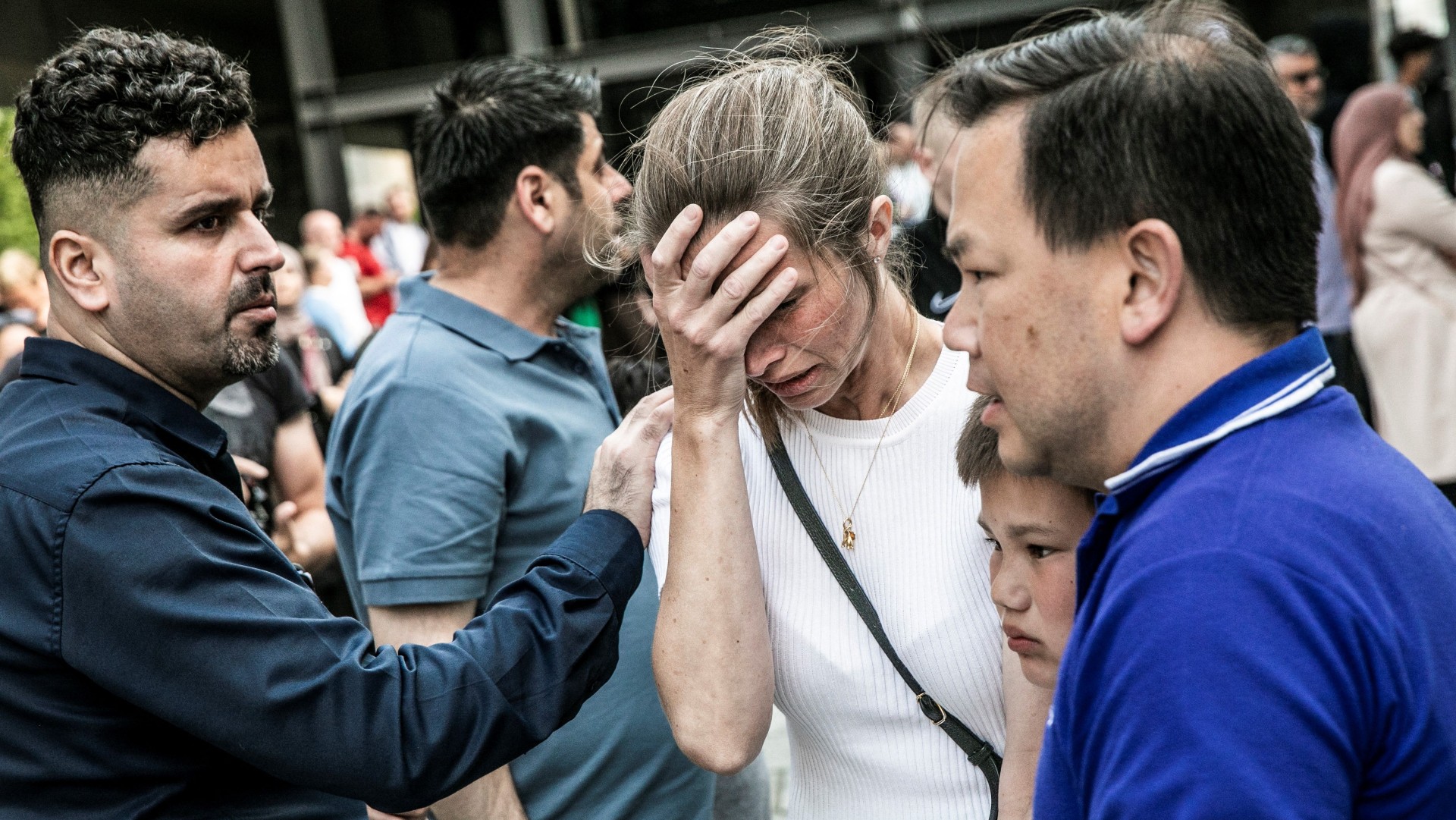 What we know about the Copenhagen mall shooting
What we know about the Copenhagen mall shootingSpeed Read Lone gunman had mental health issues and not thought to have terror motive, police say
-
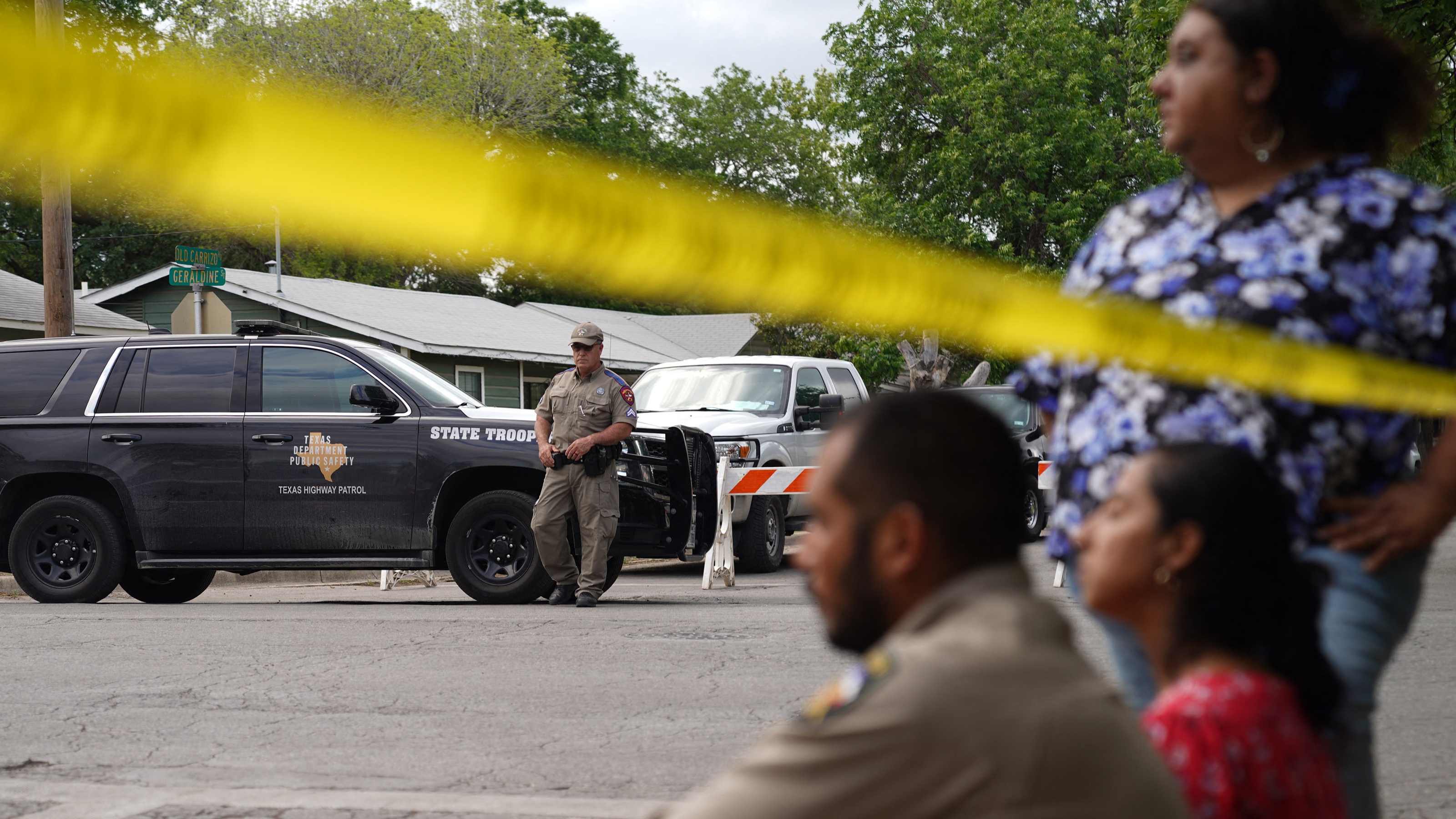 Texas school shooting: parents turn anger on police
Texas school shooting: parents turn anger on policeSpeed Read Officers had to be urged to enter building where gunman killed 21 people
-
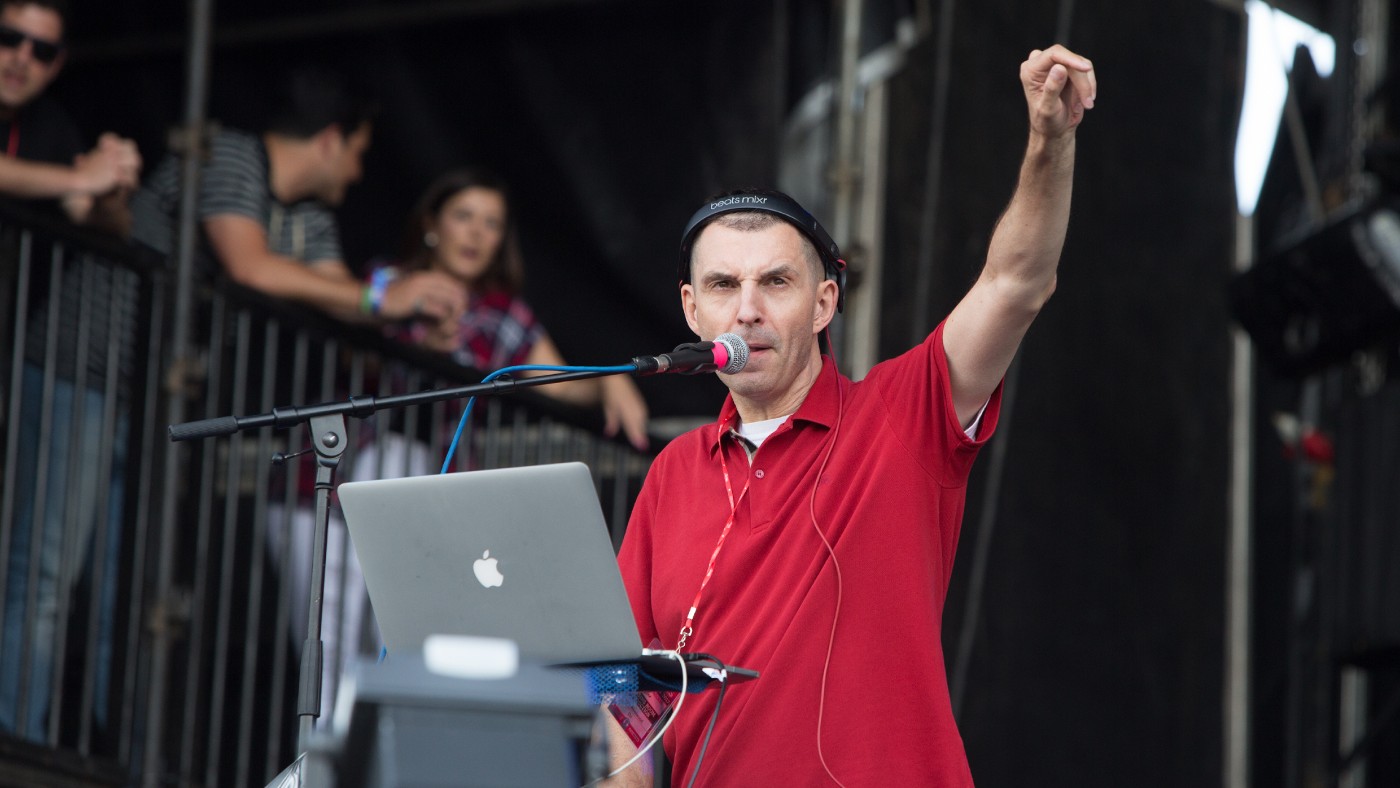 DJ Tim Westwood denies multiple sexual misconduct allegations
DJ Tim Westwood denies multiple sexual misconduct allegationsSpeed Read At least seven women accuse the radio and TV presenter of predatory behaviour dating back three decades
-
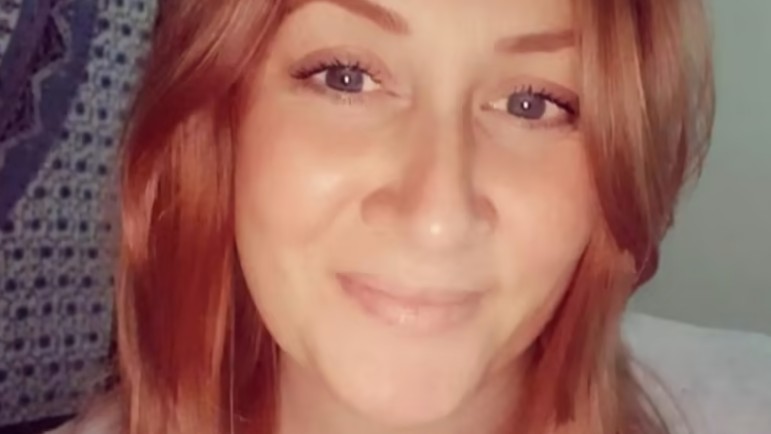 What happened to Katie Kenyon?
What happened to Katie Kenyon?Speed Read Man charged as police search for missing 33-year-old last seen getting into van
-
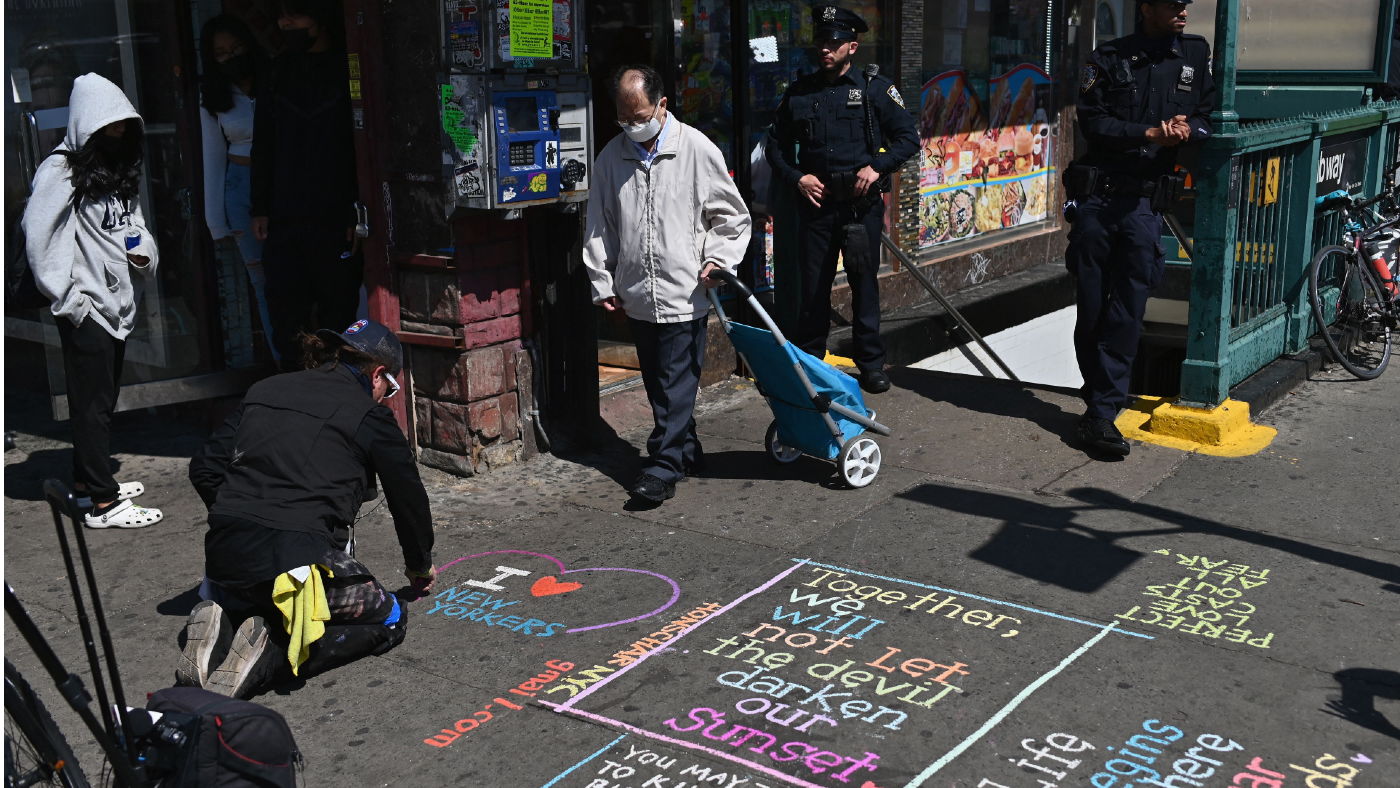 Brooklyn subway shooting: exploring New York’s ‘steep decline in law and order’
Brooklyn subway shooting: exploring New York’s ‘steep decline in law and order’Speed Read Last week, a gunman set off smoke bombs and opened fire on a rush-hour train in the city
-
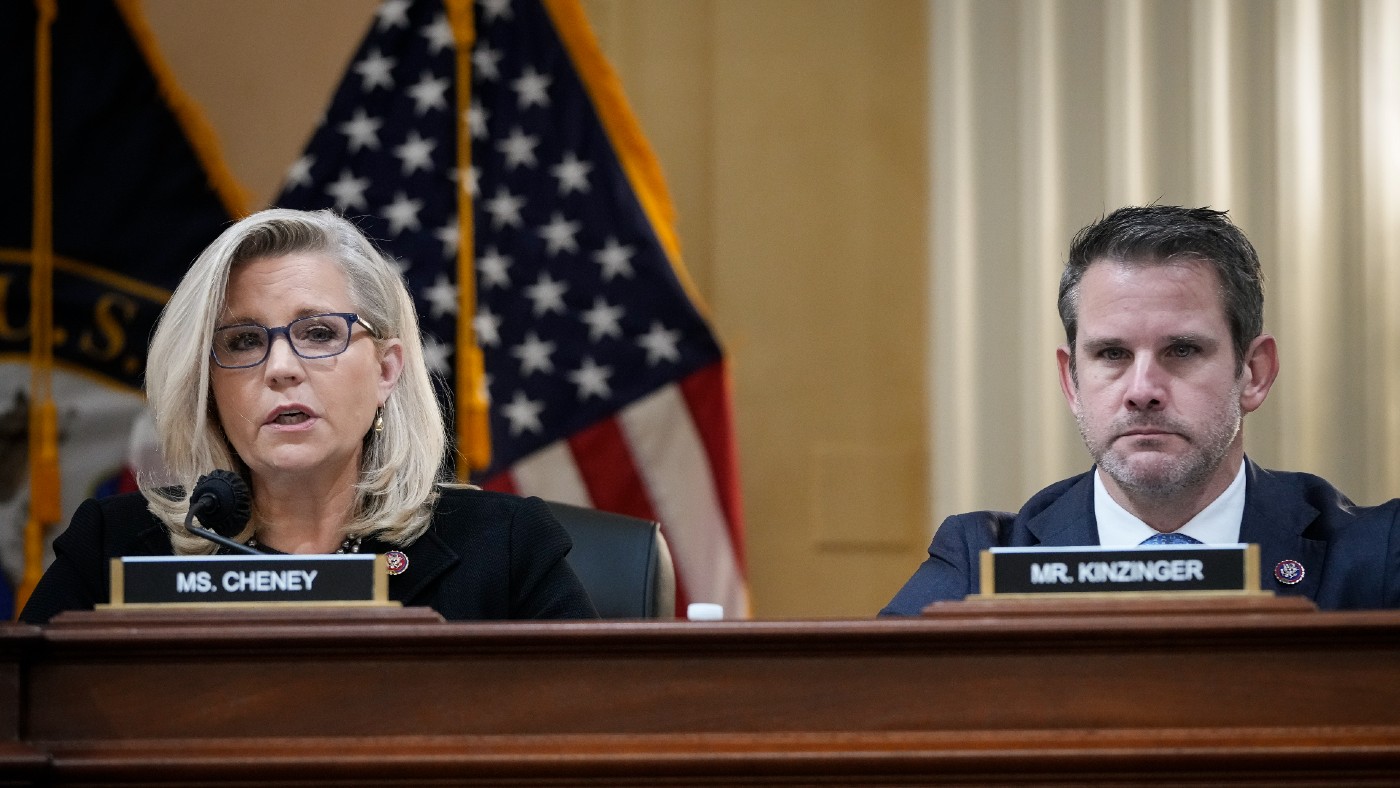 How the Capitol attack investigation is splitting the Republicans
How the Capitol attack investigation is splitting the RepublicansSpeed Read Vote to censure two Republican representatives has revealed deep divisions within party
-
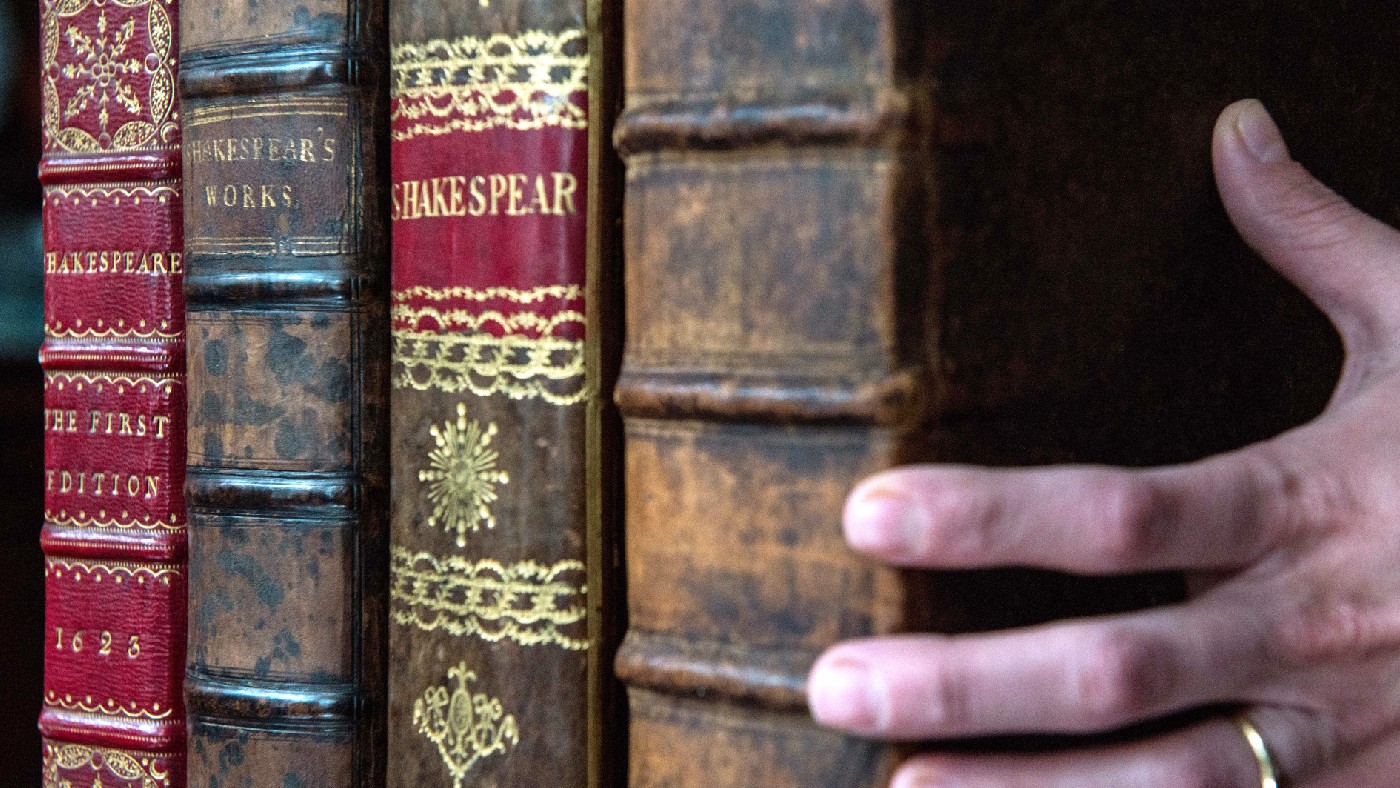 Is sentencing a Nazi sympathiser to read Shakespeare an appropriate punishment?
Is sentencing a Nazi sympathiser to read Shakespeare an appropriate punishment?Speed Read Judge seemed to think introducing student ‘to high culture’ would ‘magically make him a better person’ said The Daily Telegraph
-
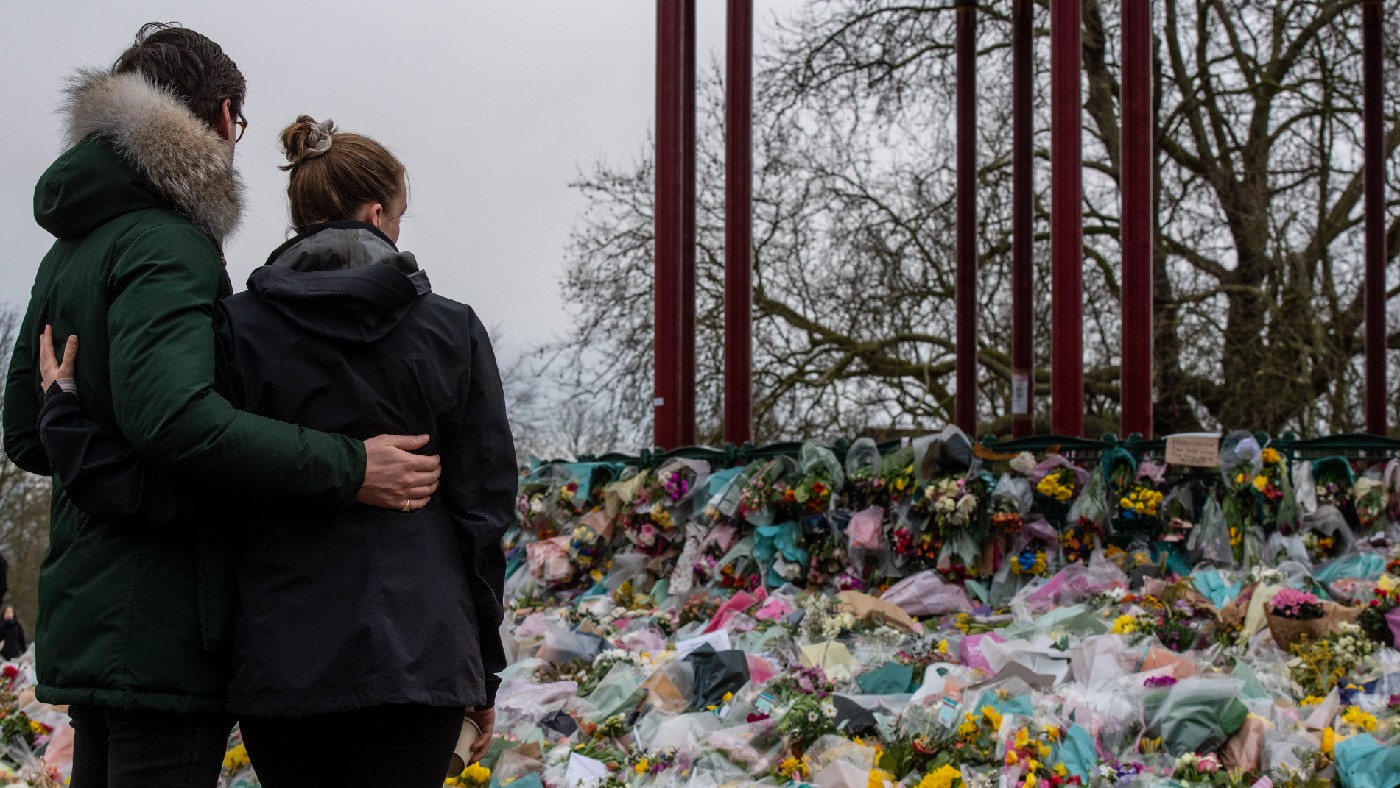 Sarah Everard’s murder: a national reckoning?
Sarah Everard’s murder: a national reckoning?Speed Read Wayne Couzen’s guilty plea doesn’t ‘tidy away the reality of sexual violence’